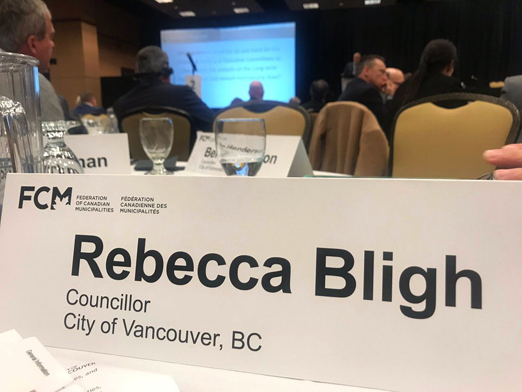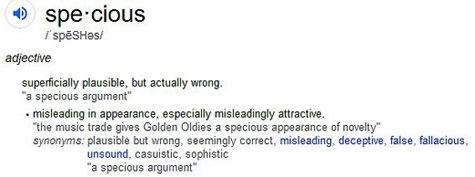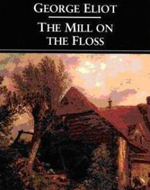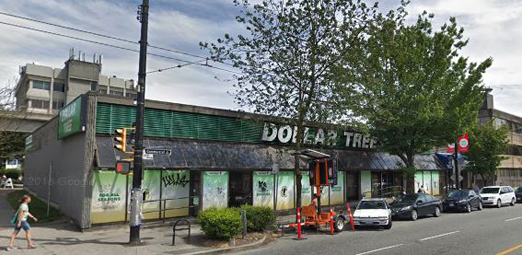 Vancouver City Council, to serve from 2018 thru October 2022, clockwise: Councillors Rebecca Bligh, Christine Boyle, Adriane Carr, Melissa De Genova, Lisa Dominato, Michael Wiebe, Jean Swanson, Sarah Kirby-Yung, Colleen Hardwick, and Pete Fry.
Vancouver City Council, to serve from 2018 thru October 2022, clockwise: Councillors Rebecca Bligh, Christine Boyle, Adriane Carr, Melissa De Genova, Lisa Dominato, Michael Wiebe, Jean Swanson, Sarah Kirby-Yung, Colleen Hardwick, and Pete Fry.
VanRamblings’ four part series this week on the state and nature of civic politics, as practiced in the City of Vancouver, continues.
Today, we’ll provide a bit of history and insight into Councillors Melissa De Genova, Lisa Dominato and Michael Wiebe, all elected to Council this past October, providing as well a brief insight into how each is faring in the current term of office at Vancouver City Hall.
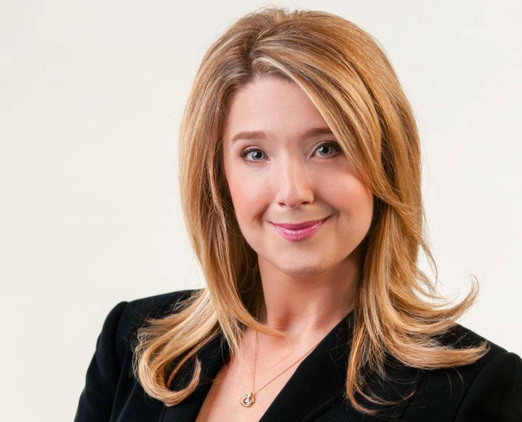 Second term Vancouver City Councillor Melissa De Genova, Chairperson of Council’s standing committee on City Finance and Services, and Council delegate to the Metro Vancouver Board, where she will be joined by her first term NPA colleagues, the estimable Colleen Hardwick and Lisa Dominato, as well as OneCity Vancouver’s entirely tremendous Christine Boyle, and the Green Party of Vancouver’s Adriane Carr, who will joined on the Metro Vancouver board by her Green Council colleague, Michael Wiebe.
Second term Vancouver City Councillor Melissa De Genova, Chairperson of Council’s standing committee on City Finance and Services, and Council delegate to the Metro Vancouver Board, where she will be joined by her first term NPA colleagues, the estimable Colleen Hardwick and Lisa Dominato, as well as OneCity Vancouver’s entirely tremendous Christine Boyle, and the Green Party of Vancouver’s Adriane Carr, who will joined on the Metro Vancouver board by her Green Council colleague, Michael Wiebe.
Vancouver voters first elected the quite wonderful, on our side, Melissa De Genova to office in 2011, to our city’s much cherished Park Board — but, at the time, woefully underfunded, due to the Vision Vancouver City Council of the day’s demolition of the Park Board budget — securing for herself and the party with which she ran and remains a member, the Vancouver Non-Partisan Association, a fifth place finish, securing 56,501 votes, exactly 6,622 votes more than Vision’s Trevor Loke’s seventh (and last) place finish. Vision Vancouver + the NPA = trouble writ large.
The Vision Vancouver-led Park Board, first elected to a majority in the 2008 election, were quite something to behold, good people but very much loyalists to their party, often at the expense of serving the public interest.
From the outset, given Vision’s poor treatment of Ms. De Genova, and her NPA Park Board colleague, John Coupar, in her first term in elected office, Melissa (“Melissa, just call me Melissa”) knew she was in for the fight of her life — to know Melissa is to know that she was very much up to the task. Park Board Commissioner De Genova never gave an inch to her opposition on the Board, making it abundantly clear she felt they were scoundrels.
During her now eight years at the seat of political power in our city, Melissa De Genova, to be effective, has always needed a foil. At Park Board, in Aaron Jasper, Niki Sharma, Sarah Blyth, Trevor Loke and Constance Barnes, Ms. De Genova had foils times five, although she reserved most of her disdain for Mr. Jasper, Ms. Blyth, Ms. Sharma and Mr. Loke, in that order — more often than not, letting the admirable Ms. Barnes off scott free.
In her second term on Council, Ms. De Genova has acquitted herself well, adjusting to the more collegial approach to governance that has come to define our new Council. But ever in need of a foil, most unfortunately Councillor De Genova has chosen her very bright NPA colleague, first term Councillor Sarah Kirby-Yung (the latter, VanRamblings’ favourite Councillor). Almost makes one harken for the good ol’ toe-to-toe battles Councillor De Genova waged with Vision Vancouver climate change warrior, Andrea Reimer, who always gave as good as she got — a worthy adversary, indeed.
[In an article from The Georgia Straight]. “Recently, Councillor De Genova was one of the five members of Council who voted against Council’s tax shift burden motion, joined by Mayor Kennedy Stewart and councillors Christine Boyle, Colleen Hardwick, and Jean Swanson.
‘That doesn’t mean that I voted against supporting small businesses, Ms. De Genova told The Straight’s Carlito Pablo in a phone interview.
Councillor De Genova said there are other ways of reducing the tax burden on businesses without pitting them against homeowners. One example she cited is for the city to work with the province to modify the business-property class so multinational companies pay higher taxes. Revenues can be passed on to help local businesses.”
Note should be made that Councillor De Genova was part of a recent unanimous vote to pass a precedent-setting climate action plan for our city.
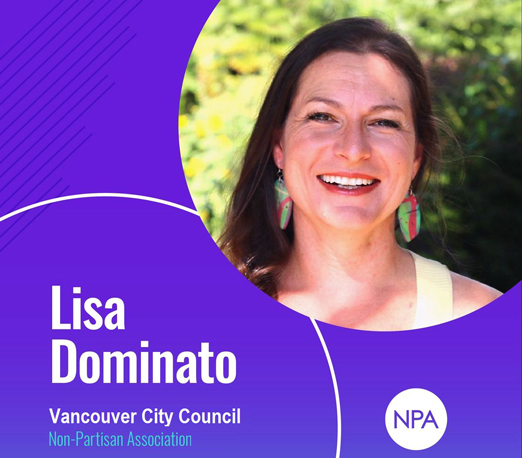
Lisa Dominato, another one of VanRamblings’ favourite new Councillors, the quiet intellectual heft behind this new Council, a Councillor who really knows how to consult and listen (and do her homework), a communicator par excellence, a woman of great accomplishment (as may be seen below), one of the four millennials on Council — in fact, one of the more than two dozen millennials elected across our region this past October — and a recent outstanding Vancouver School Board trustee, who served with distinction on Vancouver School Board following the 2017 by-election.
[From the City website]. Ms. Dominato is a a public servant who has held several senior management portfolios with the Government of British Columbia, specializing in social policy. A former chief of staff to the Deputy Premier and Minister of Education, and a senior advisor to the B.C. government’s Minister of Management Services, throughout her time in the public service, Ms. Dominato became known for her collaborative and pragmatic approach to tackling complex issues and building strong relationships to achieve common goals.
Graduating with a Master of Arts in Leadership from Royal Roads University, and a Bachelor’s Degree in Psychology from UBC and University of Burgundy in Dijon, France, Ms. Dominato is fluent in French and English, a recipient of the Premier’s Annual Innovation and Excellence Awards, and (am I allowed to say this?), a loving and attentive mom.
An utterly charming person with whom to speak to and interact with (pretty rare in this day and age of too often rank partisanship), Councillor Lisa Dominato continues to live in Hastings-Sunrise with her husband, Dale, and their two daughters, who are aged 7 and 5.
Truth to tell and unsurprisingly, Councillor Dominato has proved to be one of the more fiscally conservative (or is that, fiscally responsible?) members, among her new colleagues on Council (but not socially conservative, by any stretch of the imagination), who among other initiatives, recently supported Council’s 2% tax shift from small business to homeowners …
“The small businesses are really fundamental to the character of our community, to our city, and when I talked to homeowners about [a tax shift], it was welcomed — they understand that it might be $40 or $80 more on their property tax,” Councillor Dominato recently told Vancouver Courier civic affairs reporter, Mike Howell. “I didn’t feel there was a divide of homeowners versus businesses. It was very much that we value our small businesses, we value having jobs in our community so people can work here and live here.”
On the environmental front, Councillor Dominato was one of the strong voices on Council supporting Councillor Christine Boyle’s activist and necessary climate action motion, and when responding to a query from the TriCity News’ Grant Lawrence averred that Vancouver is considering a plastic bag ban by 2021, referring Mr. Lawrence to the City of Vancouver’s director of waste management and resource recovery, who told the reporter that “a recommendation for a bag ban may come sooner than 2021.”
Councillor Dominato is also a heritage advocate, recently expressing concern at a public hearing about the pending demolition of the 71-year-old Kitsilano Lutheran Church, at 2715 West 12th Avenue.
Councillor Lisa Dominato sits on the Metro Vancouver Board, and in November 2018 was appointed as the Chairperson of the Pacific National Exhibition Board.
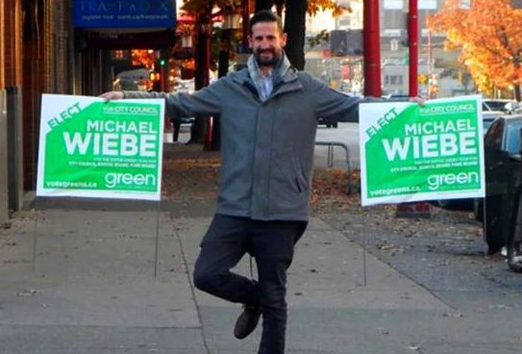
Arising from an often raucous 2018 change election, Vancouver City Councillor Michael Wiebe represents one of four millennial voices on Council — Vancouver’s other millennial councillors, Rebecca Bligh (NPA), Christine Boyle (OneCity) and Lisa Dominato (NPA) — has emerged as our city’s most passionate arts advocate, and staunch representative of small business (himself the owner operator of eight 1/2 Restaurant Lounge, just off Main on East 8th Avenue), last week supporting Council’s motion to shift the tax burden away from small business operator to homeowners.
Councillor Wiebe was one of only a few Councillors who supported granting the 4/20 organizers a permit, as he did last term, when he sat as both a Park Board Commissioner, and later as the Park Board Chairperson.
“If we permit them, we would be able to deal with the stage. We could work to make [the event] smaller, to make sure there are enough washrooms, and work to establish a site plan,” Councillor Wiebe told the CBC. “In a non-permitted event, we don’t have those controls.”
Councillor Wiebe also spoke in favour of finding the capital funding for rebuilding Coal Harbour’s shuttered Harbour Green Dock, the closure of which in 2018 meant the end of a Bowen Island commuter passenger service provided by Bowen Land and Sea Taxi since 2010.
Councillor Wiebe, along with his Green Party Council colleagues and the full contingent of NPA Councillors, in December 2018, voted with a Council majority 7-3 to ask the B.C. NDP government to withdraw the province’s school surtax levied on homes valued at $3 million, or higher. Mayor Kennedy Stewart, and Councillors Jean Swanson and Christine Boyle of the Coalition of Progressive Electors and OneCity, respectively, cast the negative votes. NPA Councillor Lisa Dominato was absent during the vote.
Truth to tell, Councillor Michael Wiebe is still finding his feet on Council, attendant to the voices of City Hall staff, and his fellow Councillors.
To date we’ve not heard much from Mr. Wiebe on either of the critically important affordable housing or transit files — a circumstance that is likely to change this upcoming September, when City staff report back to Council on proposed changes to the Rental 100 programme. Mr. Wiebe’s fellow Green Councillor, Adriane Carr, has already spoken in favour of mandating that developers set aside 20% of units in all new rental (and we would hope, condo) construction at the CMHC / Council “moderate rental rate” — $950 for a studio unit; $1,200, one bedroom; $1,600, two bedrooms; and $2,000, three bedrooms (with lower “moderate rents” on Vancouver’s eastside), for those earning between $30,000 and $80,000, which would be one component of Council’s upcoming affordable housing strategy.
 |
 |
